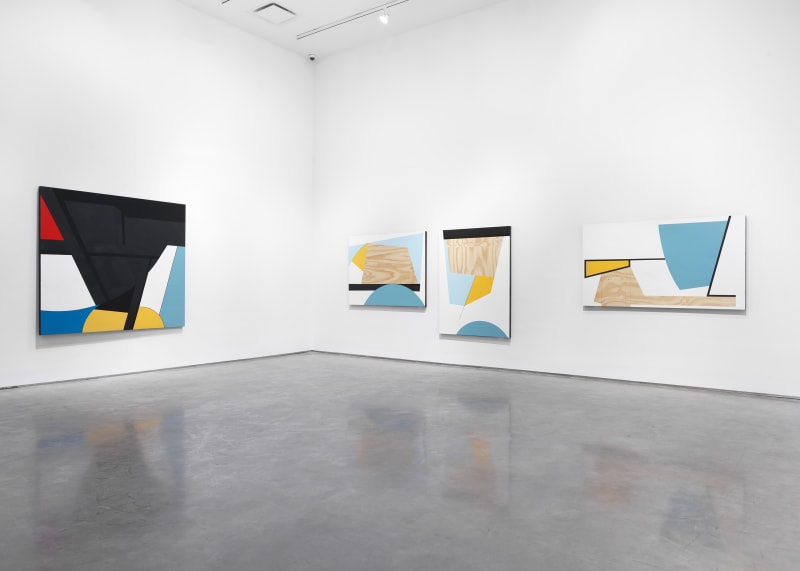BY DANIEL CREAHAN
Since joining Marianne Boesky several years ago, the Johannesburg-based painter Serge Alain Nitegeka has explored a series of ever-changing, constantly evolving approaches to a familiar construct. Blocks of color and stark, geometric forms dominate his pieces, always interested and invested in the way their application is capable not only of dividing up the space of his panels, but equally in how the viewer’s comprehension of space is shifted in turn. For his most recent exhibition at the New York Gallery, Nitegeka brings a selection of striking new paintings that continue this array of interests, applied towards increasingly impressive ends.
The works on view here are indicative of much of the artist’s prior work; bright masses of color negotiate against his broad, deliberate brushstrokes in deep black. The lines and colors present themselves almost as a map of sorts, a chart of spatial intensities that has much to do with his own internal landscapes as it does his relationship to the surface in the midst of their construction. The artist’s geometric compositions seem to surge forth, and speak to a spontaneous relationship, as Nitegeka twists his lines and colors across each wood panel. Matte and glossy blacks appear in wide strokes and fine, delicate lines, while his use of stark whites, warm yellows, and cool blues offer a striking counterpoint. These are works that embrace the act of construction, not in the pursuit of a concrete scenario or abstracted sense of pure energy, but rather in the relationship of space itself. Nitegeka pushes his work to cast off easy readings through the history of abstraction, instead producing scenes that have little to do with the action of construction, and more with the end result, spatial arrangements designed to push the viewer into distinct understandings and awarenesses of how space and shape can rearrange our own sense of perception.
Yet Nitegeka’s work is equally engaged with a sense of memory and reclamation, of engaging with these brusque black marks as an expression of lost memory, of isolation and spatial meandering. In part drawing on his own experiences of forced migration, Nitegeka’s works use black in particular as a void space, of the bounding agents that underwrite and inform the development and expression of human emotion even as it threatens to block out and impede these same elements. Exploring this dialectic, stretched between expression and silence, space and its negation, Nitegeka’s work is capable of speaking volumes, even as it remains mired in a quiet repose. As the artist himself writes in the exhibition press release: “At the end of the day, while we close our eyes asleep in the black, the heaviness catches up. No one is spared. Black is ever constant.”


